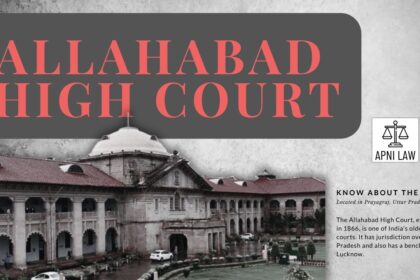Code
(1) Any person having any interest in any newspaper, book or other document, in respect of which a declaration of forfeiture has been made under section 95, may, within two months from the date of publication in the Official Gazette of such declaration, apply to the High Court to set aside such declaration on the ground that the issue of the newspaper, or the book or other document, in respect of which the declaration was made, did not contain any such matter as is referred to in sub-section (1) of section 95.
(2) Every such application shall, where the High Court consists of three or more Judges, be heard and determined by a Special Bench of the High Court composed of three Judges and where the High Court consists of less than three Judges, such Special Bench shall be composed of all the Judges of that High Court.
(3) On the hearing of any such application with reference to any newspaper, any copy of such newspaper may be given in evidence in aid of the proof of the nature or tendency of the words, signs or visible representations contained in such newspaper, in respect of which the declaration of forfeiture was made.
(4) The High Court shall, if it is not satisfied that the issue of the newspaper, or the book or other document, in respect of which the application has been made, contained any such matter as is referred to in sub-section (1) of section 95, set aside the declaration of forfeiture.
(5) Where there is a difference of opinion among the Judges forming the Special Bench, the decision shall be in accordance with the opinion of the majority of those Judges.
Explanation
Section 96 of the CrPC deals with the power of the High Court to set aside a forfeiture declaration made by a Magistrate under Section 82 of the CrPC. This provision allows a person whose property has been declared forfeited to appeal to the High Court against the Magistrate’s order.
According to Section 96, any person aggrieved by an order of forfeiture made under Section 82 can apply to the High Court to set aside the declaration. The High Court, after hearing the parties concerned, has the power to:
- Confirm the order of forfeiture;
- Set aside the order of forfeiture;
- Modify the order of forfeiture.
Illustration
Let’s say a Magistrate declares a car belonging to Mr. X to be forfeited under Section 82 of the CrPC. Mr. X believes that the declaration was unjustified and that he was not given a fair chance to present his case. He can then approach the High Court under Section 96, seeking to set aside the forfeiture declaration.
Common Questions and Answers
Q1. Who can file an application under Section 96?
A: person whose property has been declared forfeited under Section 82 of the CrPC.
Q2. What is the time limit for filing an application under Section 96?
A: There is no specific time limit mentioned in Section 96. However, the application should be filed within a reasonable time after the order of forfeiture is passed.
Q3. What are the grounds on which the High Court can set aside a forfeiture declaration?
A: The High Court can set aside a forfeiture declaration if it finds that the Magistrate acted illegally, improperly, or in violation of principles of natural justice. The High Court can also set aside the declaration if it finds that the forfeiture was not justified or that the property was not actually used for the commission of the offense.
Q4. Can the High Court modify the order of forfeiture?
A: Yes, the High Court can modify the order of forfeiture. For example, the High Court may reduce the amount of property to be forfeited or may substitute the forfeited property with another property of equivalent value.








